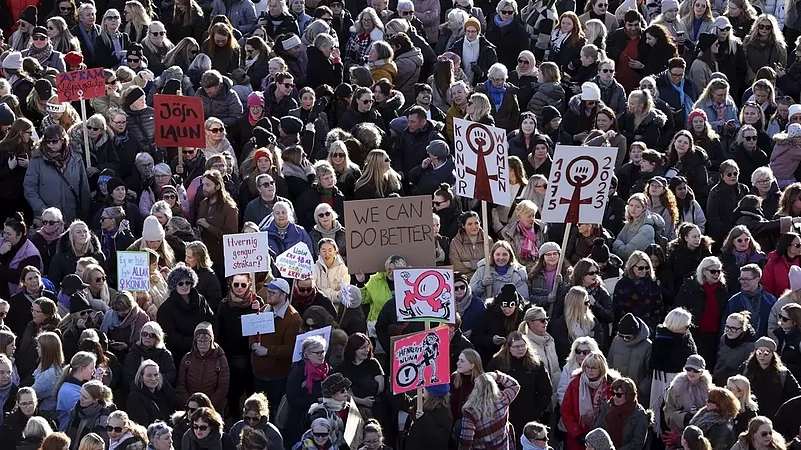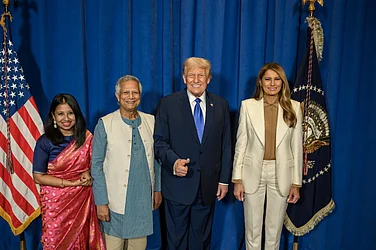For centuries, women have been seen as the ‘second’ gender. They have been denied the right to work, mistreated, harassed, shamed and restricted to domestic roles. When things started to change after the Second World War, and women joined the workforce, they still found themselves struggling to get the same respect, status or remuneration as men. Sadly, this struggle continues to this date despite a narrower pay gap and improvement in terms of opportunities across the world.
Even in the world’s most gender-equal country – Iceland – women are not treated as equals. Last week, tens of thousands of women and non-binary people went on a strike demanding an end to unequal pay and gender-based violence. Iceland’s Prime Minister Katrín Jakobsdóttir too joined the strike.
The "kvennafrí", or women's day off, was called on Tuesday as citizens awoke to all-male news teams announcing shutdowns across the country, delayed public transport, understaffed hospitals and unclean hotel rooms. Trade unions, the strike’s main organisers, accounting for about 90% of the country’s workers, called on women and nonbinary people to refuse paid and unpaid work, including chores.
This was the first such planned walkout since the 1975 Icelandic women’s strike when 90 per cent of women refused to work, clean or look after children and gathered in the centre of capital city Reykjavik to voice anger at workplace discrimination. The strike had a lasting impact and paved the way for the election of the world’s first democratically elected female president – Vigdís Finnbogadóttir.
The volcanic island of about 380,000 people just below the Arctic Circle has been ranked as the best country for equality for 14 consecutive years by the World Economic Forum (WEF), based on its pay, education, health care and other factors. It is considered an “equality paradise”. Yet, the country has a long road to go to address its gender disparities, and on top of that, the country also battles with a culturally deep-rooted issue of violence against women.
The gender pay gap in Iceland stands at about 9.52 per cent, much lower than in other countries, including India, where women earn about 27 per cent less than men, or the United States, where it stands at about 18 per cent, according to studies.
The latest strike brings to the fore the global state of inequality women face for the same amount of work done, if not more, compared to men. Their entry into active economic life has rarely been matched by a corresponding improvement in their living or working conditions. Women have always had to fight harder in every field of life and continue to do so relentlessly.
However, the failure of women workers to achieve significant gains in terms of occupation sends a loud message to governments, CEOs and managers who continue to deny equal rights and safety for women at work.
In this light, Outlook takes a look at pay disparity and other inequalities women across the world continue to face while we await a better, more equal tomorrow.


























